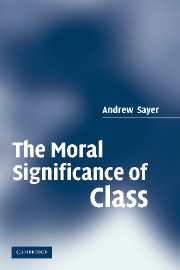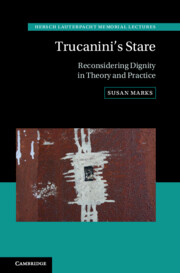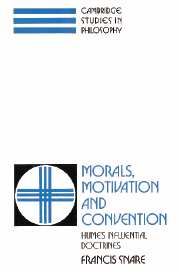The Moral Significance of Class
The Moral Significance of Class, first published in 2005, analyses the moral aspects of people's experience of class inequalities. Class affects not only our material wealth but our access to things, relationships, and practices which we have reason to value, including the esteem or respect of others and hence our sense of self-worth. It shapes the kind of people we become and our chances of living a fulfilling life. Yet contemporary culture is increasingly 'in denial' about class, finding it embarrassing to acknowledge, even though it can often be blatantly obvious. By drawing upon concepts from moral philosophy and social theory and applying them to empirical studies of class, this fascinating and accessible study shows how people are valued in a context in which their life-chances and achievements are objectively affected by the lottery of birth class, and by forces which have little to do with their moral qualities or other merits.
- Draws upon moral philosophy to interpret what sociology tends to miss about class: its moral significance
- Analyses the moral aspects of the subjective experience of class inequalities in an original and accessible way
- Develops a new approach to understanding ordinary experience
Reviews & endorsements
"Andrew Sayers' book The Moral Significance of Class is a profound exploration of the complex intersections between morality...and the analysis of social class. It is stimulating and insightful both in the overall thrust of its argument and the details of its analysis." -Erik Olin Wright, American Journal of Sociology
"This book will be useful to scholars with an interest in Bourdieu's sociological theory, class analysis, issues of distribution and recognition, and critical social theories. Those who advocate a sharp separation between the normative and the positive in social science will probably not be convinced, but others looking to renew critical sociology through an understanding of the normative dimension of social life will find much to consider." -Michèle Ollivier, Canadian Journal of Sociology Online
Product details
July 2005Adobe eBook Reader
9780511112119
0 pages
0kg
This ISBN is for an eBook version which is distributed on our behalf by a third party.
Table of Contents
- Preface and acknowledgements
- 1. Introduction
- 2. From habitus to ethical dispositions
- 3. Recognition and distribution
- 4. Concepts of class: clearing the ground
- 5. Struggles of the social field
- 6. Moral and immoral sentiments and class
- 7. Responses to class I. egalitarianism, respect(ability), class pride and moral boundary drawing
- 8. Responses to class II. explanations, justifications and embarrassment
- 9. Conclusions and implications
- References.







